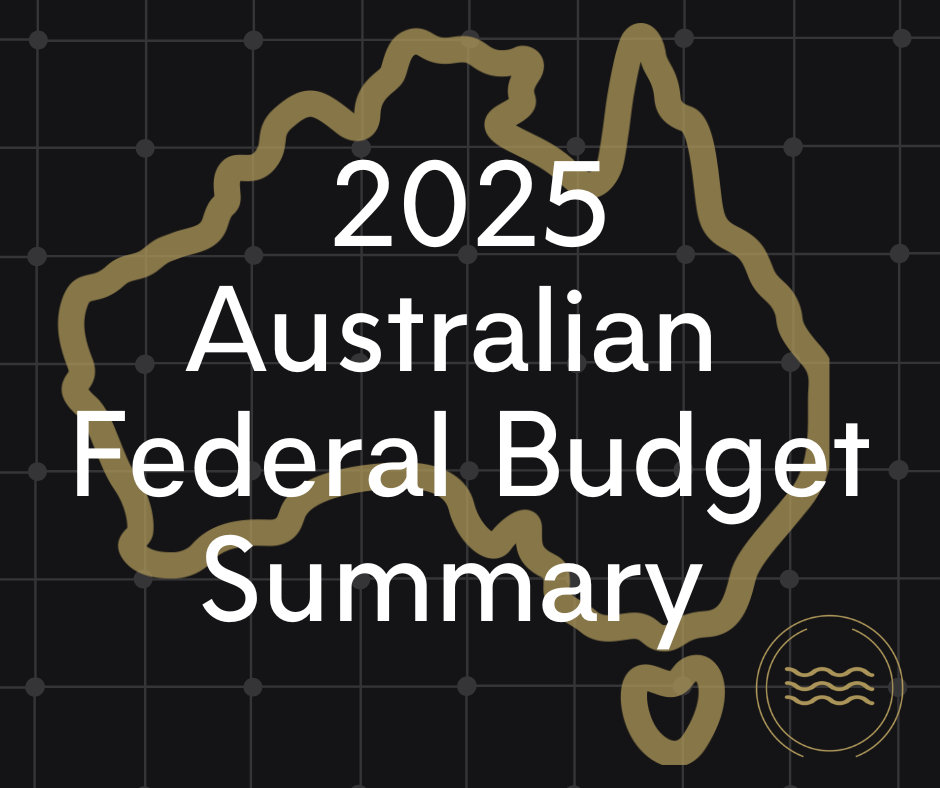
Owning Private Aviation with Shelley Svoren
One of the first episodes in the Wealth Management Series talked about how you could begin your journey of investing in private aviation. Today, we continue that topic with special guest Shelley Svoren who talks to our host, Peter Harper, about how you can go about owning, sustaining, and maintaining your aircraft.
Check out the podcast and transcript below to hear the continuation of Episode 2. Tune in to our podcast every other week to learn more about the many ways you can manage your wealth wisely.
To listen to the podcast, click play below or go to https://asenaadvisors.podbean.com/
Transcript TL;DR
Peter Harper: Hello and welcome to the Three Pillars podcast. I’m Peter Harper, the managing director and CEO of Asena Advisors. For those of you who are not familiar with the business, we’re a multifamily office advising foreign family offices and private clients on US direct investments and mergers and acquisitions. In this episode of the Wealth Management series, we’ll be discussing private aviation with Shelley Svoren. Shelley, once again, it’s fantastic to have you here with us.
Shelley Svoren: Well, thank you so much, Peter, for having me on your podcast and welcoming me into your community. As you mentioned, my name is Shelley Svoren. I’m the CEO and founder of Infinite Branches, which is a consulting company focused on meeting the financial needs of businesses working with in business aviation and those who use business aviation. And I like to think of business aviation as an investment in one’s brand that facilitates efficiency, as well as safety to meet my client’s unique needs. Over the course of my near 30 year career, I served in financial management capacities in banking and regulatory organizations, as well as technology in multinational consumer brands. Among the many things I’ve done throughout my career, I’ve partnered with multiple stakeholders to manage sales activity and minimize expenses. I’ve developed and managed detailed and multinational budgets. I’ve structured complex credit facilities, provided customized analyses that identified new niche market opportunities and whether divestitures should commence, and developed and managed client referral and financing relationships. And in addition to aviation, I’m experienced with the complexity of owning and perfecting an interest in and monetizing maritime art and winery and vineyard assets. In my spare time, I serve on the board of the International Aviation Women’s Association as the network’s vice president of leader development and I support the activities of our scholarship, mentorship, internship and leadership development committees where we are working to develop the skills and the opportunities for women in aviation globally. And I also serve on the National Business Aviation Association’s Diversity, Equity and Inclusion Working Group. Thank you again for this opportunity.
Peter Harper: So, Shelley, last time we had Lisa Senters on our podcast when we were talking about private aviation and we discussed markets generally, basics of buying So what I’d like to do is as far as is starting, this discussion with a general. overview of how the process of buying, applying and dealing with people who’re trying to understand this process, how that actually works, and someone who’s thinking about it for the first time, what are the initial steps they should be taking?
Shelley Svoren: Peter, you’ve asked an amazing question, and it’s one of the many things that I am doing at Infinite Branches. I’m taking my last 14 years of my career where I worked for a bank that focused on meeting the aviation financing needs of our high net worth clients to another level. Buying an aircraft can sometimes be a daunting task. There are so many different facets of it, and what you really want to do is find someone that can build your team to help you find the right aircraft, which Lisa does extraordinarily well, but also someone who provides you the thoughtful tax advice and ensures that whatever tax advice you’re given meshes with the requirements of the Federal Aviation Authority. Sometimes they’re not intuitive, and you want to make sure you lay the foundation appropriately and how you structure your aircraft ownership. Typically, it’s done through a limited liability corporation, but that may not be what you need or your clients need. And then, of course, it’s finding the right legal adviser who knows the ins and out to meet your ultimate goal of owning and operating the aircraft. And two other participants, one is an aircraft management company. People often ask me, why do I need an aircraft management company? And I want to say economies of scale. If you find the right aircraft management company, they will not only help you find, hire and keep your pilots well trained, they can find your director of maintenance to make sure your aircraft is well-maintained and can help manage your flight needs. And if you so choose – charter your aircraft when it’s not in use and do so in compliance with all of the Federal Aviation Authority’s legal requirements that involve chartering an aircraft.
Shelley Svoren: And last but not least, I go back to what I did for the past 14 years, which is if you so choose to finance your aircraft, you find the right lender that works for you and elevates your aircraft ownership by providing you with the right structure and who can work with your team that you’ve created to structure a financing facility that meets your needs, not just initially. But Peter, I can imagine that a lot of your clients and listeners were like the ones who I worked with in the past: they’re creative, entrepreneurial individuals. And sometimes it’s hard to predict what their cash flow will be like in the future. And so finding a lender that can work with your clients needs not just today, but think about how you should work with them in the future. It’s incredibly important, and sometimes in the excitement it’s not something that people generally think about. So what I’m doing today, I’m working with a couple of high net worth individuals to build their deal teams, and so we bring in people who can fulfill all of those roles. And we work together seamlessly and we build off of each other’s strengths to make sure our client is happy, not just today, but five years down the road when they’re contemplating, do we want to buy another aircraft do we continue to maintain a happy, path with the mission that we have today and the asset that we own?
Peter Harper: Shelley, the music to my ears that I’m hearing you talk about, you’re actually bringing a math based approach to assessing the acquisition of a plane, right? So a lot of times people are coming at this process with the heart. And I know that one of the biggest areas of regret for folks can be particularly when they’ve had a singular liquidity event that may not be repeated is how quickly they’ve turned a lot of money into not a lot of money through sort of poor investment decisions around assets such as planes. I mean, there was a lot of great stuff there that you were talking about, you know, the right people, the need for commercial attorneys to negotiate the deals, tax attorneys to ensure the financing piece is tax efficient, and then a team to kind of manage the asset so that as it depreciates over time and things wear out, which like any depreciating asset they do, that you’ve got a team that’s looking after the asset to make sure that if you need to sell it, it’s still retaining their value. What is the approach that you take when people are trying to analyze that and compare it with, you know, because with the advent of Jet Cards and all these other sort of different options that are out there to make them truly understand the economic decision that they’re making.
Shelley Svoren: Well, I always like to take a step back and realize that every situation is unique. And so I use my superpower, which is my curiosity, to have a conversation with my clients and ask them. This is fantastic that you want to fly private. But what is causing this decision that you’re making and how do you expect to use the aircraft and who will be using it along with you? And that starts to open up the discussion about the type of aircraft that they need versus what they want, because sometimes Peter as you know, wants and needs can be two vastly different things. And so at that point, we start digging a little bit further to investigate what makes sense for them. And as you pointed out, sometimes you’ll have a singular liquidity event and it may not be repeated. So how do you conserve that capital if you want to actually purchase an aircraft? And you can use tax depreciation for this particular purchase? There’s a lot of ins and outs of it. And this is why I guide people to work with an aviation tax advisor who works with your general tax advisor to gain the ins and outs of what it is that makes the most sense for you.
Shelley Svoren: I had a client recently, a former client now, whose tax advisor had said, well, they needed to put the aircraft into an income producing status, and the principal knew enough about the tax implications of doing so and the logistical issues that might provide a hindrance or a hurdle for them with the FAA. And he said, this is not what we want to do. So that shows that I’ve tried to bring my clients up and not just let it be a black box for them to say that I am the one who knows everything or that the tax advisor knows everything. My goal always is to give everyone a little bit of ownership in the decision that’s made, so they feel confident with the decision that they make today and be comfortable as well coming back to me 12 months, 18, 24 months from now to say, I’m not sure if this makes sense. And so it’s the ability to be confident and comfortable asking questions and having the conversation that I like to empower my clients with at every step of the way.
Peter Harper: Yeah, that’s a great. I think a lot of times where the difference between a good adviser and a poor adviser across any specialty is your ability to take complex data sets and frame it in a way where they can understand. I mean, generally, people that are in this level – that have got this level of wealth – are intuitively intelligent and have the ability to understand and assess this type of information quickly provided it’s framed in the right way, and I think a couple of things that you’re touching on there is that I’m sure from a regulatory standpoint in a risk mitigation perspective, I mean, when you go in and say, Hey, listen, I’m going to buy a plane and all of a sudden you’re in the business of chartering planes the risk associated with that would be biblical proportions, right? The level of risk that goes up when all of a sudden someone could crash a plane, right? So how does that impact your insurance? All these different things that kind of come out of that? But it comes back to how we conduct ourselves on any, any different investment or expenditure item in our clients to think about. We model out the data sets as far as what are the options? And then we work with the appropriate people to figure out solutions. So it’s, you know, it’s great to see that we’re aligned on that. So probably the one area that I think also is probably overlooked is is maintenance. Can you talk us a bit about maintenance, how important it is to the overall management of a plane? You mentioned as part of the team that you need to bring together to look after and work out what you want to buy You mentioned that maintenance folks were very important part of that team. How important are they and what sort of role do they play in locating a plane and the ongoing management of a plane?
Shelley Svoren: Well, I know that you’ve probably heard this before, but it’s always worth restating: aviation is deeply embedded in a culture of safety. And it’s not just the pilots that takes safety as their number one priority, it’s also their partners who are maintaining the aircraft. So many of the components of the aircraft have set maintenance schedules that are mandated by the original equipment manufacturers, and in some cases, if those maintenance milestones are not being met, the aircraft can’t fly. Literally, it cannot fly. It can be grounded for that particular work. So it’s always important to find someone who is qualified to touch your aircraft, to maintain it properly, and if you are working with an aircraft management company, what you will find is the moment that you engage them to be a part of your aircraft acquisition team, they will go out and they will conduct their own assessment. They will determine, particularly if it’s a used aircraft, what the maintenance schedule should be. And they will help you develop a budget related to the cost associated with the ongoing maintenance and milestones that are that are associated to keep the aircraft flying. What you’ll see too in particular with an engine manufacturers they offer maintenance contracts and many times this makes absolute perfect sense. What these are, really, they’re almost like savings accounts, Peter, to where you put money into these accounts based upon the hour of usage each month, and they save up for certain milestone events so that you’ve essentially repaid for them. But at the same time, to the benefit of that versus saving for yourself are efficiencies that the manufacturers provide to you for ensuring that you are involved in these maintenance programs. So I hope that gives a little bit of insight to your community without going too far into the weeds. But let me put it this way: Maintenance it is not something to take lightly, and it is really important that you partner up front and on an ongoing basis with someone who can ensure the safety of your aircraft and its operations.
Peter Harper: Oh, Shelley, that’s great, I want to again, thank you for coming in today. You know, the biggest things for me that I’ve taken away from this is that for anyone that’s assessing whether or not to buy a plane and going through that process, and they want to understand the cost benefits of doing that, Shelley and her wizard team of folks will come in, analyze the data, give you the tools you need to do that, and help you make the right choice as far as buying. That is not as straightforward as buying the shiniest, pretty thing, which I don’t mind people buying expensive stuff, but the biggest thing I always try to ensure with my clients as they understand the cost of doing that so that’s huge. And building a team, I mean, I think like on anything when a lot of my clients, if they’re going off and they’re going investing in a deal or doing something in business that they’ve done forever, they would always coordinate a team of experts to help them go off and achieve whatever they’ve got to do. This is no different. And I think you know, it’s often the case that people can can approach things like this where they’ve used to having a team around them like, I don’t need a team, I just need one person to know, like, you need a team of experts because this can be a complex deal. So again, thank you for for all of your guidance and help today. If anyone that’s listening today would like to get in contact with Shelley, her details are up on our website. Www.asenaadvisors.com And you can feel free to reach out to Shelley and her team directly, and I’m sure they’ll take good care of you. So, Shelley, thanks again for joining us.
Shelley Svoren: Peter, it’s been my pleasure and thank you to you and your team and your community for having me here today. I really appreciate this opportunity.




